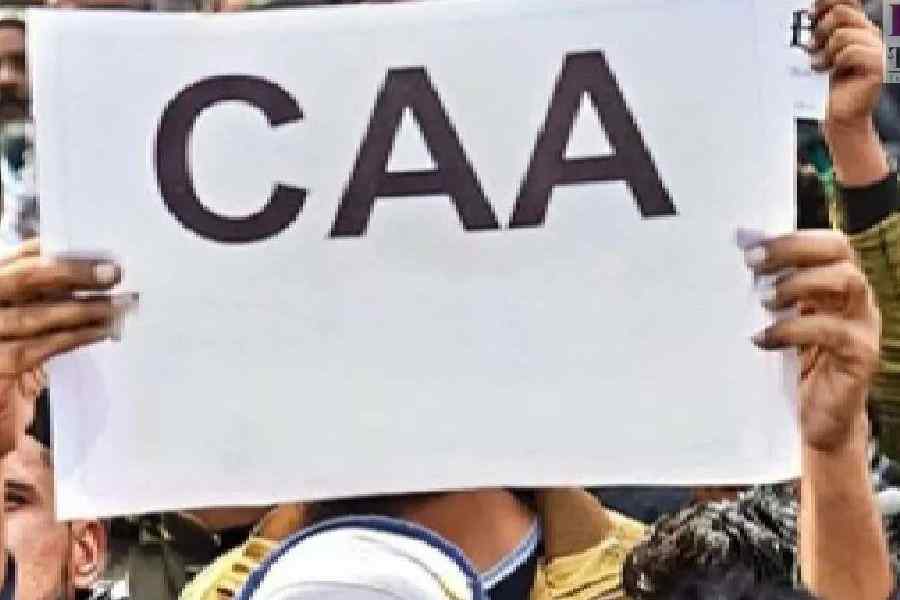Members of about a dozen civil society groups on Saturday decided to reach out to the Matua community in Bengal to explain why they should not apply for citizenship under the Citizenship Amendment Act (CAA), which came into effect on March 11 following a Union home ministry notification.
The members of the groups, under the banner of the Joint Forum Against NRC, a platform of like-minded organisations, held a meeting at the Academy of Fine Arts and reached a consensus on challenging the legislation in the Supreme Court.
“We filed an interim petition in the Supreme Court yesterday (Friday) with our demand for a stay on the CAA. This legal battle will continue.... Besides, we all agreed that our members would go across the state and meet the refugees, especially the Matua community members, and make them aware that the legislation is brought only to dupe them in the name of citizenship,” said Prasenjitt Bose, convenor of the forum.
The meeting was attended by organisations like Young Bengal, United Forum for National Integrity and Jai Bheem Network, which had taken part in the anti-NRC movement in Calcutta that was launched in August 2019.
The members felt that reaching out to the people on their doorsteps and taking on the legislation legally would be a better step than organising street protests, which was the hallmark of the initiative launched in 2019.
The representatives of different organisations discussed how the gazette notification had created confusion among the refugees — most of whom are from Bangladesh — as there was no clarification on the status of the applicants if their pela for Indian citizenship was denied.
The Telegraph had reported this confusion among a large number of residents in Thakurnagar, the headquarters of the Matua community that had been at the forefront in demanding the roll-out of the CAA. The need for several documents — like proof of Bangladesh nationality with passport and visa — and a declaration that the applicant is an illegal immigrant have resulted in apprehensions among the Matuas.
During the meeting, the representatives of various organisations discussed the need to explain to people that the CAA is part of a larger agenda to carry out an NRC-like exercise, which inflicted “Doubtful Voter” status on lakhs of people in Assam.
“The deactivation of Aadhar cards of scores of people in recent months should not be looked at in isolation.... People need to be communicated that deactivation of Aadhar cards, the introduction of CAA and then theroll-out of the NRC are allpart of a larger plan,” said advocate Jhuma Sen, who is appearing on a case involving the deactivation in Calcutta High Court.











